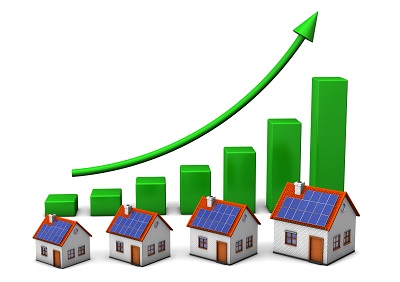Buying Your First Investment Property
 Buying your first home is a major milestone in a person’s life. It means you have achieved a big part of the American Dream. It is even a better feeling when you buy your first investment property.
Buying your first home is a major milestone in a person’s life. It means you have achieved a big part of the American Dream. It is even a better feeling when you buy your first investment property.
When you are capable of making an investment in a property, other than your home, you are on the path to building up a real estate portfolio that creates benefits for the rest of your life. This is not to say that there are no risks involved. We all saw during the 2008 real estate meltdown in America, there is always the possibility of real estate valuations going down. Prior to 2008, the only way, for the most part, was for real estate prices to go up.
In Houston, the real estate prices have rebounded to be back to above 2007 levels at higher prices now that those before the big crash in the market. Financing is available and opportunities for real estate investment abound.
Tips for Buying Investment Properties
Here are some things to consider if you are buying your first investment property:
Personal Goals
It is important to set your goals and be realistic about them, as well as be dedicated to achieving them.
Profits
Some real estate investors want to make quick profits by “flipping” properties, which is buying them at below market value and selling them quickly after possibly making repairs and renovations.
Monthly Income
Others want monthly rental income from their properties. In the Houston market area with careful management, it is possible to create positive cash flow by renting out single family homes. Positive cash flow means the rent is more than enough to cover the mortgage payment, the insurance expense, the property taxes, and the maintenance costs of the property.
Positive Cash Flow
If you end up with $50 at the end of the month after all the bills have been paid for the rental home, this is positive cash flow and essentially the renter is buying the home for you. At the same time, you are allowed a mortgage deduction to offset any taxable income.
Downside
The downside of owning rental properties is the tenant headaches. You will constantly need to respond to tenant requests for repairs such as a backed-up toilet and so forth. If you get a bad tenant, not only will it cost you lots of money in lost rent; they literally can destroy the place. There are ways to reduce this risk and you have to be very careful who you rent the property to.
Passive Income
Passive income from real estate is also possible, which provides an income stream that does not require any landlord responsibilities. An example of this is investing in a Real Estate Investment Trust (REIT) that owns many properties and manages them without you needing to participate in the management or deal with the tenant problems.
Summary
The key to getting started is first of all to have spare cash that is not needed for any living expenses and you also have additional reserves for personal emergencies. Be careful not to over leverage and get into a property that you cannot afford to own if it is vacant.
Work with a very solid real estate broker, like Acres Solutions, to find the appropriate rental property. Acres Solutions specializes in finding properties that are below market value for their investors.